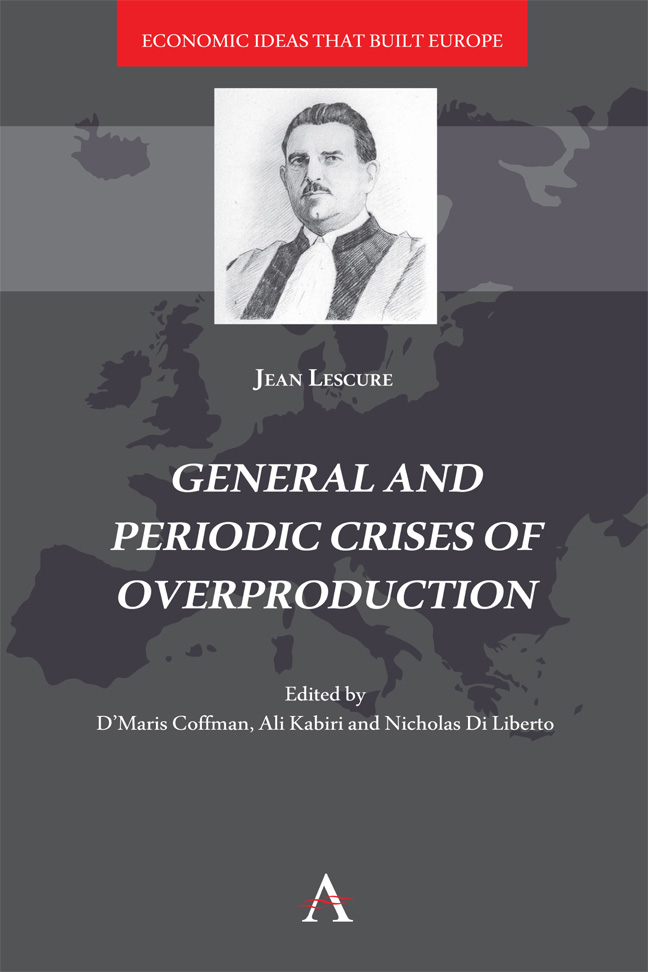
- Publisher:
- Anthem Press
- Online publication date:
- March 2024
- Print publication year:
- 2023
- Online ISBN:
- 9781839988325
- Subjects:
- Economics, Economic Theory, Finance and Accountancy
- Series:
- Economic Ideas That Built Europe

Jean Lescure's two-volume General and Periodic Crises of Overproduction is a pioneering study of the causes and consequences of industrial crises in capitalist economies in the nineteenth and early twentieth centuries. The author, who held doctorates in political economy and law, is most remembered as a founder of the French historical school and a staunch advocate of empiricism in the economic sciences. Lescure called his approach the 'complex historical method', by which he sought to revise classical and quantitative economic theory through the historical analysis and statistical observation of cyclical phenomena. Lescure wrote in an engaging style, accessible to non-specialists and economists alike, and critiqued the leading monetary theorists of the period, insisting that observation of the movements in production costs, industrial orders and profits be given priority over circulation and credit in understanding the periodic crises of capitalist economies. In Lescure's view, crises were inevitable in both market and command economies and their onset and consequences were predictable with the help of the more detailed production statistics newly available to economists and entrepreneurs at the time. Lescure, unlike many of the liberal economists of the time, was always careful to include in his historical account statistical analysis of unemployment figures, as well as those on crime, marriage and birth rates, homelessness and suicide. Although he remained skeptical of government intervention, Lescure admitted the state's role in the recovery of the 1930s, when social insurance schemes and investment in public works mitigated the worst effects of unemployment for industrial labour.
 Loading metrics...
Loading metrics...
* Views captured on Cambridge Core between #date#. This data will be updated every 24 hours.
Usage data cannot currently be displayed.